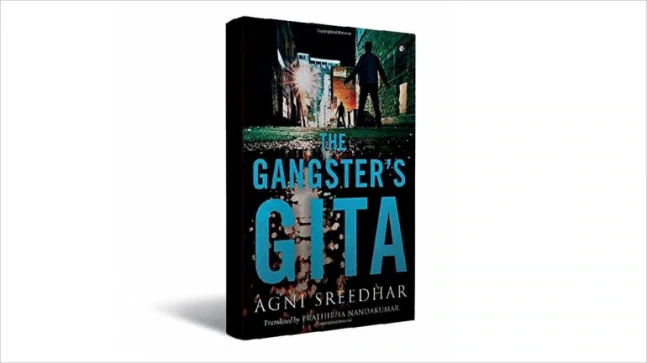
[ad_1]
Memoir meets fiction in this elegantly understated underworld novel.

The Gangster’s Gita by Agni Sreedhar, a former gangster from the Bengaluru underworld, who since his reformation has gone on to receive many literary awards, does not take the easy route of offering neat redemption or predictable comeuppance. What sets it apart from many such undertakings which aim to provide a glimpse into the criminal underworld is how accessible it is. The translator’s note mentions how the author wished for the book’s English translation to be as simple as the original in Kannada. This is ascribed to Sreedhar’s apparent distaste for prolix text and his fascination for concise authors such as Albert Camus.
This fascination does not end at brevity. Much of the book, which is a short but engaging retelling of Sreedhar’s discomfort with the task of taking out a fellow hitman, builds on an existential confusion that was explored similarly by Camus in The Stranger. In that landmark novel, Camus presented Meursault, an unremorseful protagonist who claims agency on his actions against the absurdity of society which deems him psychopathic for not weeping at his mother’s funeral and subsequently concludes that he must be guilty of the murder he is accused of. However, unlike the existentialism of Camus’ protagonist which is triggered by the slights of fate, Sreedhar’s own existential dilemma stems from being put in a position where he has no choice but to be as cruel as the societal constructs that wronged Meursault.
The minimalism in Sreedhar’s writing is conducive to pondering bigger questions that the author wishes to put forward. Law-abiding citizens are often fascinated by the inner workings of the criminals living amongst them. Popular culture has always glamorised the gangster lifestyle because it allows the audience to temporarily step into the shoes of characters unlike them and have their flights of violent fancy. They imagine that by understanding the criminal thought process, they can perhaps deduce what differentiates them from the criminals. The Gangster’s Gita, written as it is by a former gangster giving a matter-of-fact account, doesn’t allow the reader an easy vicarious ride and asks if a life of violence is really all that different from our capitalistic understanding of the modern world where survival is slowly becoming the only real objective.
[ad_2]
Source link